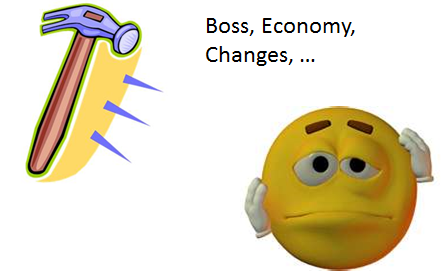
How to Approach Difficult Conversations When It’s Uncomfortable
Are you dreading a challenging conversation, particularly in a work setting? Do you fear that it might not go as planned? You’re certainly not alone; many of us share this apprehension. Based on the experiences of my clients, here are some common reasons for avoiding difficult conversations:
- People Pleasing: Fear of giving away your fair share.
- Preserving Relationships: Concerns about damaging existing relationships.
- Maintaining Personal Image: Worries about appearing too authoritarian when setting rigid expectations.
- Emotional Overload: Becoming too emotional and losing track of your points.
- Uncertain Outcomes: Not knowing where the conversation might lead.
- Fear of Disappointment or Rejection: Apprehensions about facing disappointment or rejection.
Consider the skill of difficult conversation as a learning process akin to learning how to play the piano. Just as a beginner can’t effortlessly play an entire song, you may not handle difficult conversations smoothly initially. However, with preparation and discipline, you can gradually navigate these conversations, even if the experience isn’t always seamless. As you continue to prepare and apply your learning to new situations, you’ll inevitably improve your ability to handle them. And the best part is that it helps you grow and have better personal and professional relationships.
The underlying philosophy of this approach is summarized by this:
“Ultimately, preparation is more about being centered and present than anticipating every possible outcome.”
Mark Nepo – An American poet, spiritual adviser and author of over 23 books.
Here are some steps you can follow to better prepare for difficult conversations.
Before the Conversation
- Clarify Your Goals: Determine what you want to achieve in this conversation. Examples include giving feedback, sharing concerns, or communicating a difficult decision.
- Detach from Outcomes: Avoid fixating on a specific outcome. Instead, focus on how you want to conduct yourself during the conversation.
- Emotional Processing: Take time to process your emotions related to the topic or the person you’ll be talking to. Discuss or journal these feelings with a trusted individual to clear your mind.
- Shift from Transactional to Relational: Remember that one conversation won’t solve everything. Approach it as a starting point, not the end. Progress often depends on the level of trust and relationships. Focus on building trust rather than a win-lose transaction.
- Prepare Your Main Points: Write down the key points you want to convey during the conversation. Not everything you’re unhappy about will be relevant, so get an objective perspective. Focus on facts rather than interpretations.
Right Before the Conversation
- Prepare Mentally and Physically: Allocate time for mindfulness exercises, like a short walk or some deep breathing. Ensure you’re not too hungry, full, or caffeinated. Have water on hand to stay hydrated.
- Review Your Talking Points: You don’t need to memorize them, but ensure you understand them thoroughly.
During the Conversation
- Manage Your Emotions: Pay attention to emotional build-up and physical tension. Practice mindful breathing to regulate tension or take a break if needed.
- Keep Your Talking Points Handy: Having your written points nearby helps you stay on track and allows you to jot down important insights during the conversation.
- Listen Actively: Avoid becoming too entrenched in your perspective. Instead, use the “yes-and” method to acknowledge the other person’s viewpoint before presenting your own. This approach fosters collaboration and avoids confrontational tendencies.
While you may still feel discomfort during a difficult conversation, following these steps will help you stay grounded, ultimately enabling you to progress rather than avoid the issue. For instance, my client Stacy, a director at a biotech company, recently applied these steps in a challenging conversation. She was pleasantly surprised by how liberating it felt, even though she didn’t achieve all her goals. “It gave me the confidence that I CAN have such a conversation,” she told me with a smile.




